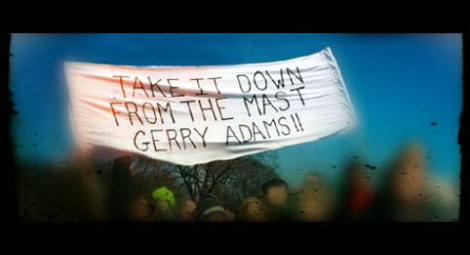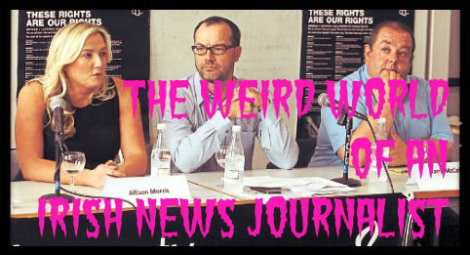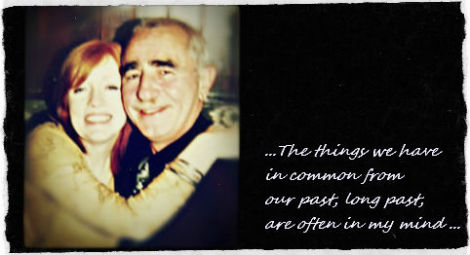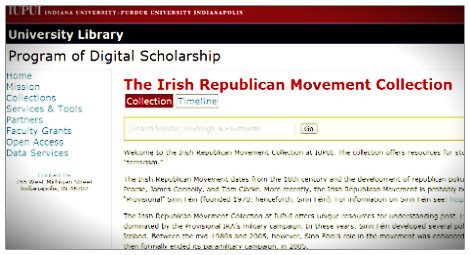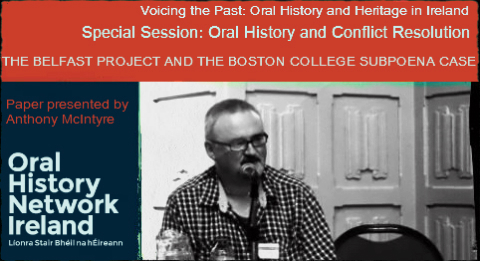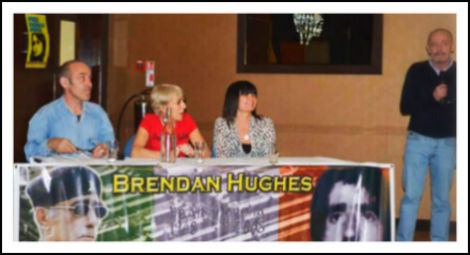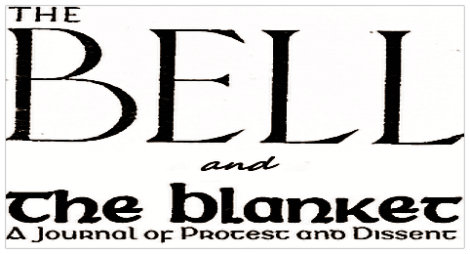 Manuel Frau Ramos reviews Good Friday: The Death of Irish Republicanism for El Sol Latino.
Manuel Frau Ramos reviews Good Friday: The Death of Irish Republicanism for El Sol Latino."One of the most outstanding contributions of this book is the fact that it constitutes a well-document chronology of the events leading to the Good Friday Agreement. It is an excellent, critical, and detailed historical insider’s analysis of the Irish peace process from a dissident’s point of view. McIntyre concludes that the revolution and the principles of Irish Republicanism were betrayed, providing a new interpretation to the “official” version presented in the mainstream media."
A Critical and Different Look at the Belfast Agreement
Manuel Frau Ramos, Editor, El Sol Latino
Ausubo Press announced the publishing of its new book Good Friday: The Death of Irish Republicanism by Anthony McIntyre. It is an anthology of McIntyre’s articles published in newspapers, magazines and mainly in The Blanket, a website online magazine. His writings cover the period from the signing of The Agreement, most often referred to as The Belfast Agreement or the Good Friday Agreement, in April 1998, to shortly prior to the shared power agreement announcement by Gerry Adams and Ian Paisley in March 2007.
The topics included in this collection touch important subjects such as The Good Friday Agreement, The Colombia Three, the hunger strikers, the murder of Robert McCartney, and the Northern Bank robbery, among others.
Anthony McIntyre, a former member of the Provisional Irish Republican Army (IRA) and political prisoner, historian and journalist, has been one of the most consistent, long-time critics of the Sinn Fein’s peace accord. In the book, McIntyre portrays a peace process that he, as well as other Irish Republican voices, regard as a twenty-year journey that brought the gradual abandonment of the Republican ideology by the IRA under the guidance of Gerry Adams and Martin McGuinness.
McIntyre indicts both Adam and McGuinness for designing and later carefully executing a strategy that eventually transformed the IRA from an armed insurrectionist to a docile reformist movement during the long peace process.
McIntyre was not against the peace process. What really angered and bothered him were the secrecy, lies, and deception surrounding the peace negotiations. He had already concluded that the armed strategy was leading nowhere. McIntyre argued that the Republican rank and file base was not ever consulted and most of the time was left in the dark about how the development of the discussions and negotiations. In addition, he points out how the pressure from the top leadership, “usually discrete but often forceful”, was felt by those who dared to question or raise concerns about the negotiations.
One of the most outstanding contributions of this book is the fact that it constitutes a well-document chronology of the events leading to the Good Friday Agreement. It is an excellent, critical, and detailed historical insider’s analysis of the Irish peace process from a dissident’s point of view. McIntyre concludes that the revolution and the principles of Irish Republicanism were betrayed, providing a new interpretation to the “official” version presented in the mainstream media.
By providing a valuable different historical point of view, McIntyre has, in turn, provided plenty of material for political analysts and historians regarding what can be considered an astonishing and complex ideological transformation inside one of the most well known pro-independence revolutionary movements in the world.
Review by Manuel Frau Ramos
Editor of El Sol Latino
is available at these online outlets:
Ausubo Press; Online Bookshop at Queens, Small Press Distribution.
You can also order directly from Gill & Macmillan:
Email sales@gillmacmillan.ie
Are you a bookseller looking to stock Good Friday?
Call or Fax your order to: Tel: +353 1 500 9500 or Fax: +353 1 500 9599
Gill & Macmillan is now the exclusive distributor in Ireland and the UK If the book is not on the shelves of your local bookstore,
ask them to order it for you!















